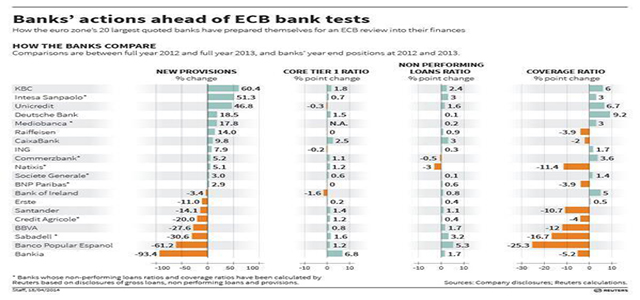While common sense warrants ECB seeking to adopt all precautionary measures for bolstering solvency, one doubts the emphasis bestowed to asset quality will bring enough comfort.
Leaning on the ability to valuing largely illiquid portfolios can become a rather deceptive endeavour. In the absence of any market reference, assigning fair prices seems tantamount to sheer clairvoyance.
No one pretends this exercise being useless. Securing independent experts in cross-examining the data will undoubtedly help to polish up the balance sheets. Leaving that task to homemade modelling always embodies a far more perilous bet. For all the efforts undertaken in mitigating risk through fair valuation, unsaleable assets in rough times act as time bombs. The more so should false expectations arise by pooling them in securities backed by derivatives and traded over the counter.
All financial crises derive from liquidity disarrays. A trouble closely linked to utter incapacity to dispose of your portfolio, in particular when your neighbours fall in the same trap. Forcing banks to harness themselves with a substantial capital base does help to avoid things spinning-off out of control. Yet, it cannot prevent collapse when confronted to massive shocks.
Only substantially higher levels of liquidity could effectively cope with extensive disruptions. Banks adamantly opposed such a move under Basel III rules, winning the day. So be it. But, don’t expect the financial system to become hard-rock just by enhancing asset valuation.






Be the first to comment on "AQR fails to address banking woes"